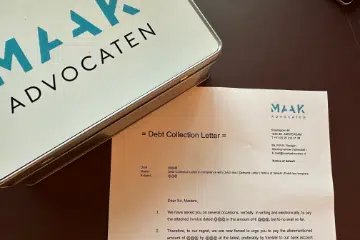
When it comes to debt collection in the Netherlands, understanding the legal process is crucial. From the initial preparation of a debt collection claim to the enforcement of a court judgment, each step requires meticulous attention and expertise. The process begins with the filing of a claim with the Dutch court, followed by the serving of the claim and notifying the debtor. Subsequently, attending the court hearing and presenting evidence play a pivotal role in determining the outcome. However, the journey does not end there; enforcing the court judgment and collecting the debt pose their own challenges. In this discussion, we will delve into the intricacies of the debt collection legal process in the Netherlands, shedding light on the various stages involved and exploring the strategies employed to navigate this complex landscape.
Key Takeaways
- The initial debt collection claim in the Netherlands involves issuing a summons or notification of default, establishing the debtor’s obligation to repay the debt, and including details such as statutory interest and collection costs.
- Debt collection attorneys in the Netherlands handle legal measures for asset seizure, but bankruptcy proceedings are considered as a last resort.
- Filing the claim with the Dutch Court requires providing all relevant details, including the debt amount and interest, and including supporting documents to substantiate the debt.
- Serving the claim and notifying the debtor is crucial, and failure to pay may lead to interlocutory proceedings or litigation. Debt collection attorneys can handle measures like asset seizure, and costs incurred can be invoiced separately. In some cases, bankruptcy proceedings may be used.
Preparing the Initial Debt Collection Claim
The initial debt collection claim in the Netherlands begins with the issuance of a summons or notification of default, notifying the debtor of the outstanding debt and the legal consequences of non-payment. This is an essential step in the debt collection process, as it formally establishes the debtor’s obligation to repay the debt. The summons typically includes details such as the exact statutory interest and collection costs owed by the debtor.
If the debtor fails to pay the outstanding debt within the specified timeframe, further action can be taken. The debt collection proceedings can then proceed to the Dutch Court, where the case will be heard. In such cases, debt collection attorneys play a crucial role. They handle the legal measures required for prejudgment seizure of assets, ensuring that the debtor’s assets can be used to satisfy the outstanding debt.
It is important to note that debt collection attorneys are professionals who specialize in navigating the debt collection process. They have in-depth knowledge of the legal procedures and can provide guidance to creditors throughout the debt collection process. The costs associated with debt collection proceedings are typically borne by the debtor and benefit the collection attorney. Pricing agreements can be based on the type and number of cases, ensuring that creditors have access to the necessary legal support without incurring excessive costs.
In some cases, if the debtor is unable to repay the debt, bankruptcy proceedings may be initiated. However, this is typically considered a last resort and is only pursued when other debt collection efforts have proven unsuccessful.
Filing the Claim With the Dutch Court
After preparing the initial debt collection claim, the next crucial step in the debt collection process in the Netherlands is filing the claim with the Dutch Court. This step is essential in initiating legal proceedings to recover the debt owed.
When filing the claim, it is important to provide all relevant details, including the amount of the debt, statutory interest, and collection costs incurred. The claim should also include any supporting documents, such as invoices, contracts, or correspondence, to substantiate the debt.
Once the claim in the Netherlands is filed, the Dutch Court will review the case and determine the appropriate course of action. If the debtor fails to respond or pay the debt, interlocutory proceedings can be initiated. In some cases, filing a petition for bankruptcy may be a viable option to recover the outstanding debt.
It is worth noting that litigation in the Netherlands is typically used for complex cases where other debt collection methods have been unsuccessful. In these situations, the court proceedings provide a formal and legally binding resolution to the debt collection issue.
Serving the Claim and Notifying the Debtor
To initiate the legal process of debt collection in the Netherlands, it is necessary to serve the claim and notify the debtor. This step is crucial as it informs the debtor of the outstanding debt and gives them an opportunity to settle the matter before further legal actions are taken.
Here are the key points to note about serving the claim and notifying the debtor in the Dutch debt collection process:
- Serving the claim involves issuing a summons or notification of default to the debtor. This document outlines the details of the debt, including the amount owed, statutory interest, and collection costs.
- If the debtor fails to pay after receiving the summons, further actions may be initiated, such as interlocutory proceedings or litigation in the Dutch court. These steps are taken to enforce the debt collection and recover the outstanding amount.
- Debt collection attorneys play a crucial role in the legal process. They handle measures such as prejudgment seizure of assets, which require permission from the court.
- The costs incurred during the debt collection process, including the fees of the collection attorney, can be granted and invoiced separately as extrajudicial collection costs.
- It is important to note that in some cases, if the debtor is declared bankrupt, the debt recovery process may be handled through bankruptcy proceedings rather than traditional debt collection methods.
Attending the Court Hearing and Presenting Evidence
When attending the court hearing for debt collection in the Netherlands, it is crucial to present compelling evidence to support the debt claim. This step plays a vital role in determining the outcome of the case. To effectively present evidence, it is advisable to engage the services of a debt collection attorney who is well-versed in Dutch law and experienced in debt collecting.
During the court hearing, it is important to prepare documentation and witnesses to substantiate the debt owed. Presenting financial records, contracts, and communications can help validate the debt and establish its legitimacy. It is essential to explain the circumstances leading to the debt and provide supporting evidence to strengthen the case.
To convey a deeper meaning for the audience, the following table illustrates the types of evidence that can be presented during the court hearing:
| Evidence Type | Description |
|---|---|
| Financial Records | Bank statements, invoices, and payment receipts |
| Contracts | Written agreements or contracts signed by both parties |
| Communications | Emails, text messages, or any written correspondence related to the debt |
Enforcing the Court Judgment and Collecting the Debt
When the court judgment in favor of the creditor is obtained, the next step in the debt collection process in the Netherlands involves enforcing the judgment and collecting the debt. Here are the key steps involved in this process:
- Initiate interlocutory proceedings: If the debtor fails to pay the debt after the court judgment, the creditor may initiate interlocutory proceedings for debt collection. This involves seeking the court’s assistance in enforcing the judgment and recovering the debt.
- File a petition for bankruptcy: If the debtor continues to ignore the debt collection efforts, the creditor may opt to file a petition for bankruptcy. This is a common approach when the debtor does not respond to debt collection agencies or bailiffs.
- Prejudgment seizure of assets: In cases where bankruptcy is not feasible, the court may authorize the prejudgment seizure of the debtor’s assets. This can include bank balances, vehicles, or other valuable possessions, which can be sold to recover the debt.
- Seek assistance from debt collection attorneys: Debt collection attorneys play a crucial role in the legal measures required for enforcing the court judgment and collecting the debt. They may seek permission from the court for prejudgment seizure and handle the associated costs.
- Contact debt collection lawyers for advice: Throughout the debt collection process, it is advisable for creditors to seek advice from experienced debt collection lawyers in the Netherlands. These lawyers can provide guidance on the most effective strategies and legal procedures to maximize the chances of successful debt recovery.
Conclusion
In conclusion, the debt collection legal process in the Netherlands involves various steps. These steps include preparing the initial claim, filing it with the Dutch court, serving the claim to the debtor, attending the court hearing, and enforcing the court judgment to collect the debt.
Debt collection attorneys play a crucial role in navigating this process. They are knowledgeable about the legal procedures and can provide guidance and representation to creditors. Their expertise can increase the chances of successful debt collection.
Additionally, pricing and cost management strategies are implemented to minimize expenses. This includes assessing the cost-effectiveness of pursuing a debt and considering alternative dispute resolution methods.
Overall, understanding and following the proper legal procedures is essential for successful debt collection in the Netherlands. It is important to work with experienced professionals and develop strategies that align with the specific circumstances of each case.


